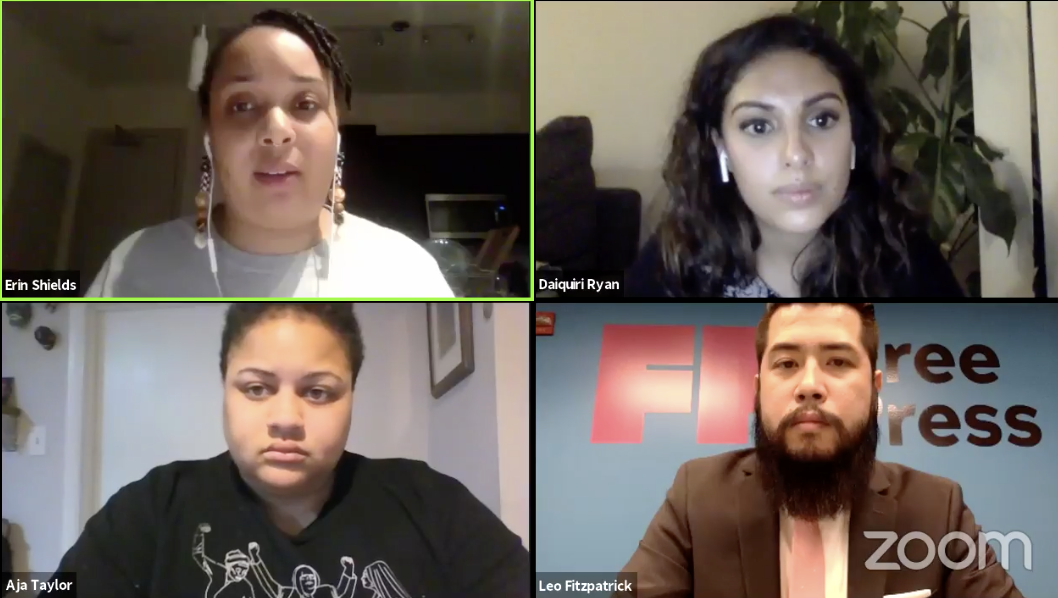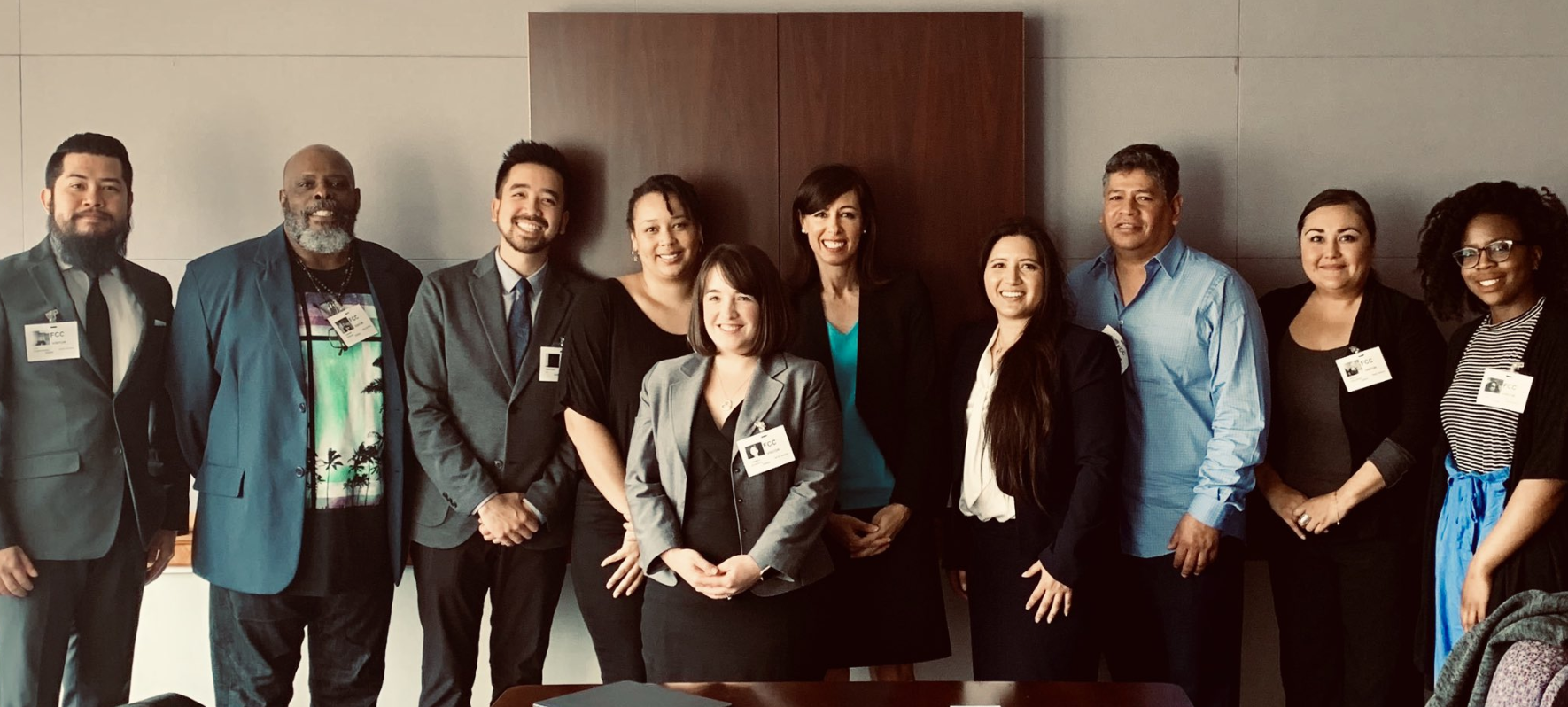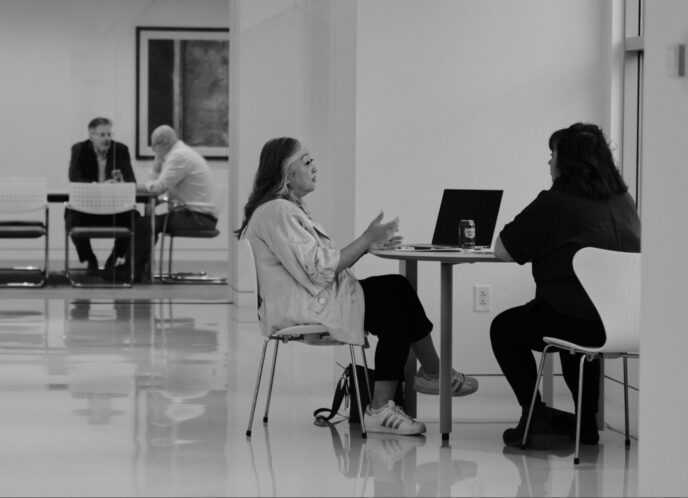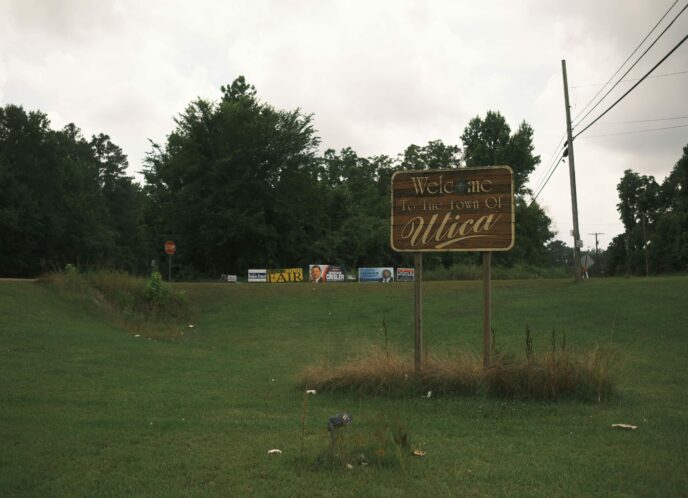The fight continues to ensure the right to communicate extends to everyone, not just those who can afford the minutes and gigabytes. Last week, we took that fight directly to the Federal Communications Commission (FCC) where Chairman Pai and other majority FCC commissioners are working to dismantle Lifeline—a program that more than 15 million people rely on to connect with essential communication services.
We started our advocacy week by collaborating with our Lifeline coalition partners on a Tweetstorm to share support for the program and highlight the various ways people using it would be impacted by the cuts and caps Chairman Pai is proposing.
The internet is vital to life in 2019. We use it to apply for jobs, do homework & more. That's why the @FCC modernized the #Lifeline program, bringing subsidized internet to low-income people. Now, @AjitPaiFCC is trying to gut the program. https://t.co/07cHbGrV8H #SaveLifeline pic.twitter.com/0Vw8QgtVyo
— MediaJustice (@mediajustice) April 15, 2019
"When people have less access to information, it's harder for them to organize and fight." Our own @ec_shields, National Internet Rights organizer, emphasized why preserving Lifeline is a racial justice issue during last fall's #SaveLifeline speakout: https://t.co/KzmDy5YSUb pic.twitter.com/tg4v7ung09
— MediaJustice (@mediajustice) April 15, 2019
In places like #PuertoRico, the #LifelineProgram is a crucial tool to #communicate with loved ones and emergency services when a disaster strikes. #disasterrecovery #disastercommunications #SaveLifeline pic.twitter.com/jkpGNh6mzo
— NHMC (@NHMC) April 15, 2019
Trump appointee @AjitPaiFCC is trying to RESHAPE the internet to less voices and more corporate control.
He started with a repeal of #NetNeutrality. Now he wants to kick poor people offline.
Ask Congress to #SaveTheNet— and ask them to #SaveLifeline too. https://t.co/xev4jEWvSj
— Free Press (@freepress) April 15, 2019
Then we dove a bit deeper with our allies at Free Press, National Hispanic Media Coalition, and Bread for the City in a #SaveLifeline digital briefing, to talk about how access to phone and internet services can mean the difference between whether or not you can find housing, are able to escape intimate partner violence, or keep in touch with family and friends.
Finally, in collaboration with Free Press, Team #MediaJustice took a delegation of Lifeline subscribers, direct service providers, and advocates to meet directly with the FCC, asking that they formally abandon the proposed reforms to the Lifeline program. The delegates met with all five commissioner offices and shared both their lived experiences with the program and also specific policy asks to make the program stronger and more robust.
Finally, to close out the day, our delegation joined Free Press in delivering over 34,000 petition signatures to the FCC, from activists around the country who are demanding that the commission not move forward with any proposed cuts to the program.. For the millions of subscribers who depend on the service to connect with family and access the services they need to survive and thrive, this is not just a policy to be tweaked and tinkered with. The Center for Media Justice and our network of allies committed to supporting our country’s most marginalized communities will continue to fight these burdensome reforms and center the voices and experiences of those with the most to lose. To learn more about Lifeline, visit https://www.savelifeline.org/.
Below, check out what our delegates Leonard Edwards from Bread for the City and Vinhcent Le from Greelining Institute had to say about why they are committed to the fight to #SaveLifeline!





